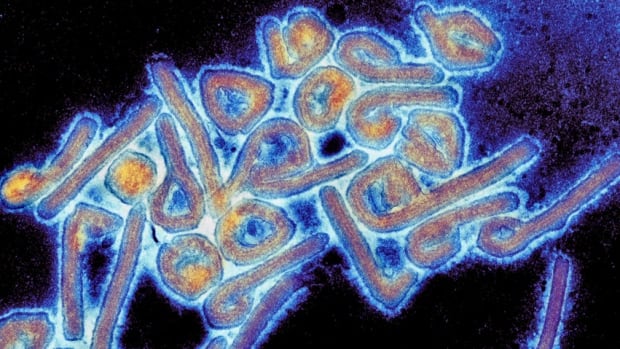The outbreak of Marburg virus infection in Equatorial Guinea has ended, the World Health Organization’s regional office for Africa said on Thursday.
The agency said no new cases of Marburg, caused by a deadly virus from the same family as Ebola, were reported over the past 42 days after the last patient was discharged following treatment.
The outbreak was declared on Feb. 13 and was the first of its kind in Equatorial Guinea.
A total of 17 laboratory-confirmed cases and 12 deaths were recorded. Another 23 were reported to have died from probable Marburg infection, WHO said.
The announcement of the end of the outbreak in Equatorial Guinea follows a similar move by Tanzania last week.
WHO said it is continuing to work with Equatorial Guinea to maintain measures such as surveillance and testing to enable prompt action should flare-ups of the virus occur.
There’s a race to contain an outbreak of Marburg disease — caused by an Ebola-related virus — in Equatorial Guinea, where at least nine people have died. There’s no cure for the deadly disease and development of a vaccine was paused years ago.
What is Marburg virus?
Marburg virus is believed to have originated in African fruit bats. It was first identified in 1967 in Germany and the former Yugoslavia, according to the U.S. Centers for Disease Control and Prevention, among people who had been working with green monkeys that had been imported from Uganda.
According to WHO, people can contract the virus through prolonged exposure in mines or caves where the bat colonies live.
The virus spreads between humans through direct contact with blood or other bodily fluids of an infected individual, or with surfaces contaminated with the virus, such as clothing or bed sheets.
Marburg is not airborne.

What are the symptoms?
Symptoms may begin “abruptly,” according to WHO, and include high fever, severe headache and malaise. Muscle aches and pains are also common.
“It can impact every organ, and it essentially will cause a shock-like syndrome,” Dr. Isaac Bogoch, an infectious diseases specialist at Toronto General Hospital, told CBC News in February at the start of the outbreak.
He said the virus can also cause gastrointestinal complications and a predilection to easy bleeding.
WHO says a rash can appear in the first seven days, and the central nervous system can be affected, resulting in confusion, aggression and irritability.
If death occurs, it generally happens eight to nine days after onset, following severe blood loss and shock.
How is it treated?
There is currently no vaccine for Marburg and no therapeutics to treat it. But patients can be helped.
“They need supportive care,” Bogoch said, including intravenous fluids, as well as electrolyte balance and monitoring. “That can significantly lower the mortality rate.”


